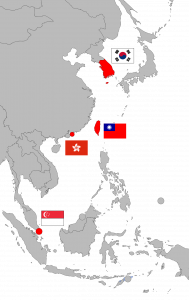Confucianism: A Living Ideology
Dr. Logan Masilamani

The rapid and dramatic economic rise of the People’s Republic of China, and also the four Dragons/Tigers, i.e. Hong Kong, South Korea, Taiwan and Singapore, has brought greater attention to the political and social aspects of Confucianism in the 20th and 21st centuries. Like other ideologies, Confucianism places emphasis on the individual and their relation to society. This is an ancient ideology that has foundations in imperial China. This ideology had its golden years in the past and has re-emerged in the present in attempts to explain the phenomenal growth of entities in Southeast Asia and East Asia. Through its social and political influences on the individual, this ideology has become associated with the economic successes of a multitude of countries in Southeast Asia and East Asia. The practitioners of the initial version as well as the variants of Confucianism have created the need to understand this ideology.
The 21st century has been argued to be the Asian century. The global economic order is slowly changing. Western economies are no longer setting the agenda, as Asian economies are gaining momentum and eagerly waiting for the opportunity to lead the world economically, potentially even creating a different world order. What has led to this change? It has been the combination of a central idea from an ideology as well as the practitioners of that central idea that put into practice the core values of Confucianism.
Thus, we need to understand some of the ideals, virtues, and concepts of Confucianism in relation to the economic and political development of these Asian entities. Many observers have attributed the success of Confucian countries (China, South Korea, Japan, Singapore, Taiwan, Hong Kong) to their common cultural values, such as respect for authority, loyalty to good leaders, a preference for order, hard work, careful spending and an emphasis on education. These attributes are all cornerstones of the ideology.

